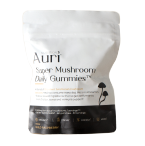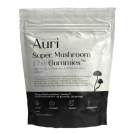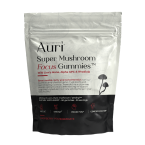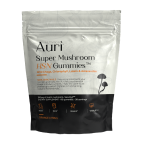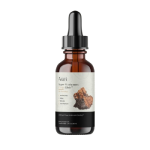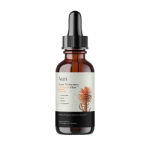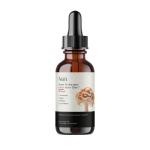Myths and Truths About Functional Mushrooms

Have you heard conflicting information about functional mushrooms? Let's clear up the confusion. This article will debunk five common myths about functional mushrooms, revealing the truth behind their benefits and uses.
You'll learn which mushrooms are truly functional, their proven health effects, and how to use them safely. By the end, you'll have accurate knowledge to make informed decisions about incorporating functional mushrooms into your wellness routine.
Key Takeaways
- Most functional mushrooms used in supplements are not psychoactive and offer potential health benefits
- Different mushroom species have unique properties that can support various aspects of health
- Functional mushrooms should complement, not replace, conventional medicine in a holistic wellness approach
- Always source mushroom supplements from reputable suppliers to ensure safety and quality
- Consult healthcare professionals before adding new mushroom supplements to your wellness routine
Myth 1: All Functional Mushrooms Are Psychoactive
Contrary to popular belief, not all functional mushrooms are psychoactive. Many mushroom supplements, including mushroom gummies, contain non-psychoactive species that offer potential health benefits.
Understanding the truth about these fungi can help you make informed choices about incorporating them into your wellness routine, while being mindful of FDA regulations and health claims.
Truth
The truth is that most functional mushrooms used in supplements, including those found in the best mushroom supplements, are not psychoactive. Hundreds of mushroom species offer potential health benefits without altering your mental state.
Many reputable brands focus on non-psychoactive varieties like reishi, lion's mane, and cordyceps. You can verify this by checking customer reviews and company information, which often highlight the specific mushroom types used in their products:
- Reishi: Known for immune support
- Lion's Mane: Associated with cognitive function
- Cordyceps: Linked to energy and endurance
- Chaga: Valued for antioxidant properties
Myth 2: Functional Mushrooms Are Just a Passing Trend
Functional mushrooms have a long history in traditional medicine and are gaining scientific attention for their potential benefits.
Research on compounds like polysaccharides and PSK suggests possible effects on brain health and cancer cells.
While some may view them as trendy, the growing body of evidence indicates that functional mushrooms, including varieties like chaga, are more than just a passing fad.
Truth
Functional mushrooms have established themselves as more than a fleeting trend in the wellness world. These mushroom species offer potential health benefits that can support your overall well-being and boost energy levels.
Scientific research continues to explore their bioactive compounds, including vitamins and minerals, which may contribute to various aspects of health.
As you consider incorporating functional mushrooms into your routine, remember that their long-standing use in traditional practices and ongoing scientific interest underscore their enduring value in supporting human health.
Myth 3: All Mushrooms Offer the Same Benefits
While functional mushrooms offer health benefits, each species has unique properties. From shiitake mushrooms supporting natural killer cells to options for your daily drink, understanding these differences helps you choose the right supplement.
Let's explore the truth behind mushroom diversity and how it impacts your wellness routine.
Truth
The truth is that different functional mushrooms offer distinct benefits, as supported by various animal studies and research on their effects on the immune system.
For instance, chaga mushroom has shown potential in supporting breast cancer cells, while other species may focus on different aspects of health.
Understanding these unique properties can help you choose the right benefits of mushroom supplements for your specific needs:
- Chaga: Potential support for breast health
- Lion's Mane: Focus on cognitive function
- Reishi: Immune system support
- Cordyceps: Energy and endurance enhancement
Myth 4: Functional Mushrooms Can Replace Conventional Medicine
While functional mushrooms offer potential health benefits, they shouldn't replace conventional medicine.
Various mushroom varieties, including those used in mushroom elixirs and super mushroom products, may act as adaptogens.
However, their effects on your body's transmission systems don't substitute for prescribed treatments. Understanding the truth about functional mushrooms helps you integrate them responsibly into your wellness routine.
Truth
While functional mushrooms like reishi and cordyceps offer potential health benefits, they should complement, not replace, conventional medicine.
Scientific trials have shown promising results for certain mushroom supplements, but their effects don't substitute for prescribed treatments.
You should view functional mushrooms, including cordyceps sinensis, as part of a holistic approach to wellness, working alongside traditional medical care to support your overall health.
Myth 5: Consuming Any Wild Mushroom Is Safe
When exploring functional mushrooms, it's crucial to understand that not all wild mushrooms are safe for consumption.
While some mushroom products, like reishi mushroom supplements, can support white blood cells and address health conditions, other wild varieties may pose risks.
Always choose reputable sources and consult experts before incorporating any new mushroom into your diet, especially if you have concerns about sugar content or other health factors.
Truth
The truth is that consuming wild mushrooms without proper identification can be extremely dangerous. While functional mushrooms like lion's mane mushroom and chaga offer potential health benefits, including antioxidant properties, it's crucial to source your mushroom powder from reputable suppliers.
Always choose professionally cultivated or expertly foraged mushrooms to ensure safety and quality. Remember, even small differences in appearance can distinguish safe mushrooms from toxic ones:
- Purchase from trusted sources that specialize in functional mushrooms
- Avoid foraging unless you have expert knowledge
- Choose mushroom powder products that undergo rigorous testing
- Consult with healthcare professionals before adding new supplements to your routine
P.S.: Some of Auri Nutrition's products are made with wild mushrooms. However, these are sourced responsibly and undergo rigorous testing to ensure safety and efficacy.
Frequently Asked Questions
Are all functional mushrooms psychoactive substances?
No, not all functional mushrooms are psychoactive substances. Many functional mushrooms, like reishi, lion's mane, and cordyceps, offer health benefits without psychoactive effects.
These mushrooms are used in supplements for their potential to support immunity, cognitive function, and overall wellness.
Is the popularity of functional mushrooms just a temporary fad?
Functional mushrooms are not just a passing trend. Their long history in traditional medicine, combined with growing scientific research supporting their health benefits, suggests they are here to stay.
As more people seek natural wellness solutions, functional mushrooms are becoming a staple in holistic health approaches.
Do different types of mushrooms provide unique health benefits?
Different mushroom species offer distinct health benefits due to their unique bioactive compounds. Some support immune function, while others may enhance cognitive performance, boost energy, or promote relaxation.
The specific benefits depend on the mushroom type, with varieties like reishi, lion's mane, and cordyceps each providing their own set of potential wellness advantages.
Can functional mushrooms completely replace traditional medical treatments?
Functional mushrooms can complement traditional medical treatments but should not completely replace them. While these mushrooms offer potential health benefits, they are best used as part of a holistic approach to wellness.
Always consult with a healthcare professional before making changes to your treatment plan.
Is it safe to consume any wild mushroom for health benefits?
No, consuming wild mushrooms for health benefits is not safe. Many wild mushrooms are toxic and can cause severe illness or death. Only consume mushrooms from trusted sources or under expert guidance.
For health benefits, stick to well-known, commercially cultivated mushroom varieties or supplements from reputable manufacturers.
Conclusion
By debunking common myths surrounding functional mushrooms, it becomes clear that these fungi offer numerous health benefits, free from the misconceptions often associated with them.
It's crucial to understand that not all mushrooms are psychoactive; many, like Reishi and Lion's Mane, are safe and beneficial to consume.
Auri Nutrition makes it simple and enjoyable to incorporate these functional mushrooms into your daily wellness routine with delicious, convenient gummies and elixirs.
As always, choose trusted brands like Auri and consult healthcare professionals to ensure these supplements complement your holistic health approach safely and effectively.



